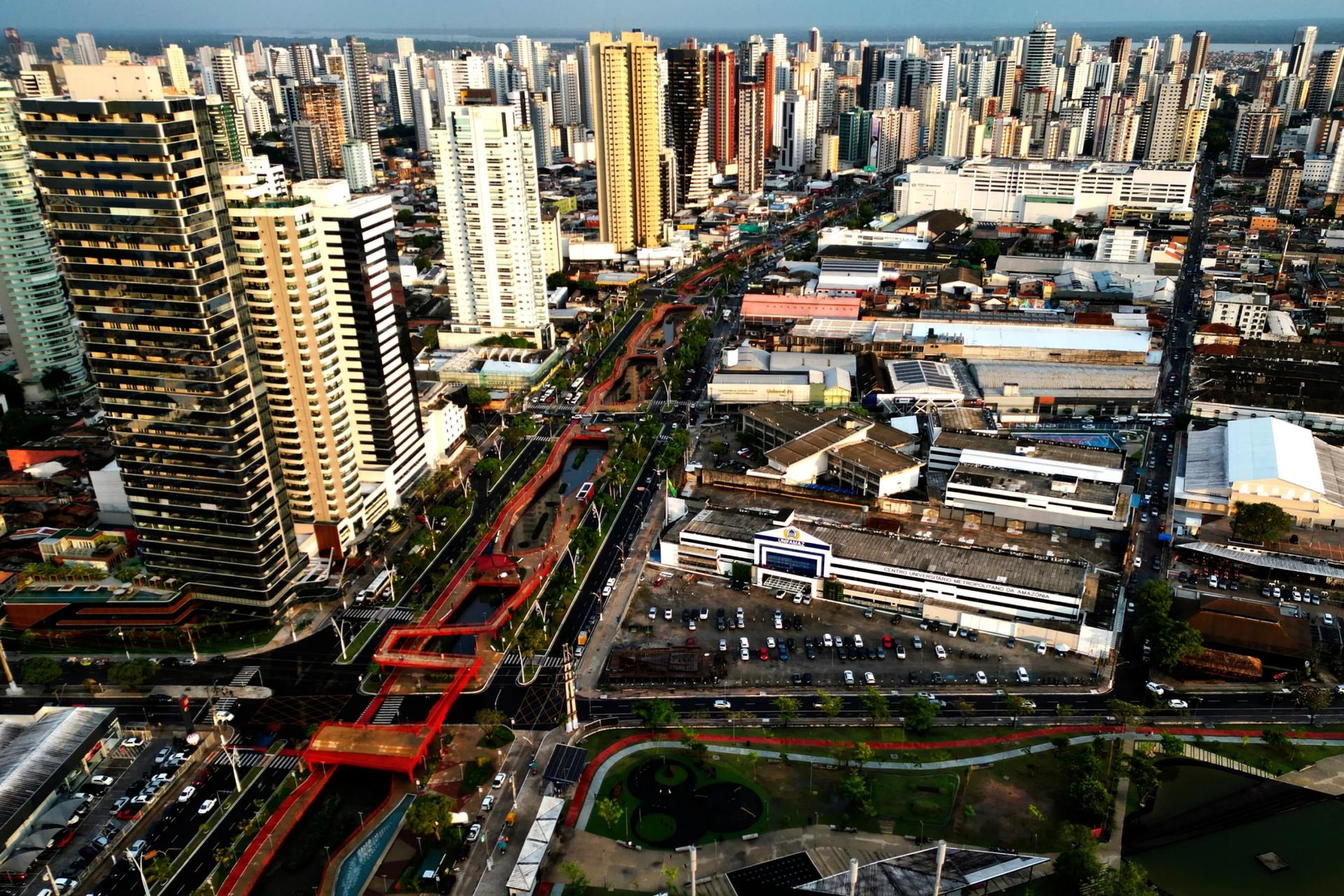SÃO PAULO – In the year of the 10th anniversary of Pope Francis’s encyclical Laudato si’, in which he discussed themes like global warming and the protection of the common house, the Church is prepared for an impacting participation at the 30th United Nations Climate Change Conference (also known as Conference of the Parties or COP30).
The event, which is being held this year in Belém, a city in the Amazonian State of Pará, in Brazil, will receive 8 cardinals and 47 bishops, as well as thousands of priests, nuns and lay Catholics. The main conference (happening between Nov. 10-21) was preceded by the Climate Summit, which gathered heads of State between Nov. 6-7.
Cardinal Pietro Parolin, Vatican Secretary of State, read on Nov. 7, during the encounter of world leaders, Pope Leo XIV’s message for the conference’s attendants, in which he urged the governments to “courageously accelerate the implementation of the Paris Agreement and the United Nations Framework Convention on Climate Change.”
The Paris Agreement, signed 10 years ago, established that nations should set their targets when it comes to reducing greenhouse gas emissions and adapting for climate change. Those goals, known as the Nationally Determined Contributions (or NDCs), must be resubmitted every five years, each time with more ambitious targets.
“We must turn words and reflections into choices and actions based on responsibility, justice, and equity,” Leo said, according to Parolin.
Analysts consider that many NDCs have not been bold enough and complain about most country’s delay to present their new NDCs (they should have revealed them in February of 2025, but 90 percent didn’t meet the deadline.)
Leo stressed that the ecological crisis “is a moral issue” and declared that “States must increasingly share responsibility, in complementary ways, for the promotion of a natural and social environment that is both peaceful and healthy.”
Besides the NDCs, delegations are expected to negotiate how much money developed nations will give to developing countries to finance climate action. The previous agreement predicted that by 2035 it would amount to $350 billion per year, but now there’s debate on scaling up that figure to $1.3 trillion per year.
Cardinals and other ecclesial officials will partake in COP30 sessions in the so-called blue zone, defending the Church’s principles on climate action: that it must prioritize the most impacted and most vulnerable populations, that the poorest must be compensated for the effects of climate change they face, that energy transition should be accessible for everybody.
A much higher number of Catholics is expected to promote and attend events in the so-called green zone, where social activists will debate the same topics dealt with by the diplomatic delegations, but from the perspective of civic organizations.
The event in Belém is expected to draw 50,000 people to the city. But they will not attend only the official conference. Several parallel events will be promoted – and most of them have great importance for the Church.
That’s the case with the Peoples’ Summit (that will occur between Nov. 12-16), which has been promoted since Eco92, in Rio de Janeiro. The encounter – that will attract at least 15,000 attendants, according to the organizers – will bring together activists, environmentalists, Catholics and members of Indigenous groups and other vulnerable populations.
They will denounce the aggressions to the environment and to its defenders in Brazil, as well as suggest possible solutions for the climate crisis, generally inspired by the lifestyle of traditional populations.
In the opinion of Father José Alcimar Araújo, the Vice President of the Archdiocese of Manaus’s Caritas, if it wasn’t for Pope Francis, probably the Church would not be so mobilized now for COP30 and the other events.
“He demonstrated in his encyclical that our faith must go beyond the church’s walls. We can’t ignore climate change, which impacts especially the poor,” he told Crux.
Manaus was one of the first archdioceses in Brazil to establish an Integral Ecology Pastoral Ministry. The group has been not only raising awareness on environmental protection, but also taking care of concrete problems.
“We have been involving civil society and politicians in a project to clean the small rivers that cross the whole city of Manaus. They’re full of garbage,” Araújo lamented. The archdiocese has been developing potential solutions for garbage disposal in the region.
In his opinion, the Brazilian Church is among the organizations that have been suggesting the most radical solutions for climate change.
“The Church, especially here in the region, is strongly mobilized for the COP30. We want new policies for the protection of the environment, particularly of the Amazon,” he concluded.
Many Catholic activists, however, especially those connected to the so-called Social Pastoral Ministries – like the Land Pastoral Commission, which accompanies the struggle for land waged by peasants and traditional populations, and the Indigenous Missionary Council – don’t think that concrete solutions for climate change will emerge from the conference.
“We need to rethink all humanity’s structure of life – the way we deal with the others and with the environment. Living can’t be limited to a predation model,” he said.















